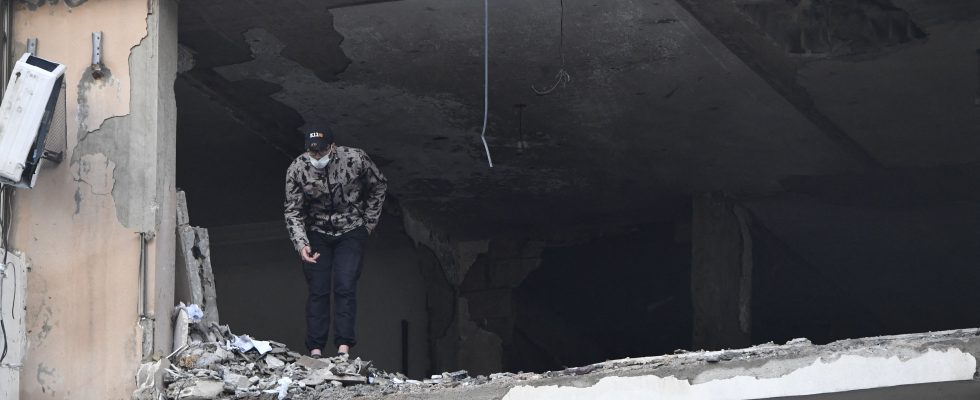Does the death of Saleh al-Arouri, number 2 in the political branch of Hamas, during a strike in the suburbs of Beirut on Tuesday January 2, mark a turning point in the war in the Middle East? The day after a fatal attack on one of the main leaders of the Palestinian Islamist movement as well as at least six of its executives, in Lebanese territory, the region is holding its breath, fearing a new escalation in the conflict with Israel.
Top official killed
Saleh al-Arouri, exiled leader of Hamas for the occupied West Bank, is the most senior official of the Palestinian Islamist movement killed since the start of this new war. Shortly after the announcement of his death, many Palestinians gathered in the streets of Ramallah, in the occupied West Bank.
“The news of the martyrdom of (Saleh al-Arouri) is very difficult for us, but it is no better than more than 20,000 martyrs dead in Gaza,” Diya Zaloum, a young demonstrator, told AFP on the spot. Furthermore, the Palestinian Wafa agency reported Israeli operations in various sectors of the territory under occupation.
Risk of “expansion” of the war
Hamas leader Ismaïl Haniyeh reacted Tuesday to the news of this strike, denouncing “a violation of Lebanon’s sovereignty” and an “expansion” of the ongoing war in the Gaza Strip. Lebanese Hezbollah, an allied organization of Hamas, warned on Tuesday evening that “the assassination of Saleh al-Arouri” was not only a “serious aggression against Lebanon” but also “a serious development in the war between the enemy and the axis of resistance”, an expression designating Iran and its regional allies hostile to Israel.
“This crime will not go unanswered or unpunished,” added Hezbollah, whose secretary general, Hassan Nasrallah, is due to deliver a highly anticipated speech on Wednesday evening at a time when Lebanese Prime Minister Najib Mikati is accusing Israel of “wanting to drag Lebanon in a new phase of confrontation” and declared that the country was filing a complaint with the United Nations Security Council, according to The Guardian. However, the IDF has not officially claimed responsibility for this deadly strike.
Since the start of the war between Israel and Hamas on October 7, tensions have increased on the Israeli-Lebanese border, in Syria and Iraq where American bases have been targeted, and in the Red Sea with attacks by Houthi rebels. , including news Tuesday evening according to the American army, aimed at slowing down maritime traffic in “support” of Gaza.
Israel says it is ready for “all scenarios”
Without claiming responsibility for the attack, the Israeli army said it was preparing for “any scenario” on Wednesday. “Israeli forces are in a very high state of readiness in all arenas, in defense and offense. The most important thing to say is that we are focused and remain focused on the fight against Hamas,” he said late Tuesday , army spokesperson Daniel Hagari.
“The idea that we could stop soon is wrong. Without a clear victory, we will not be able to live in the Middle East,” added Defense Minister Yoav Gallant. In this context, French President Emmanuel Macron called on Israel to “avoid any escalatory attitude, particularly in Lebanon” during a telephone interview with Israeli Minister Benny Gantz, member of Benjamin Netanyahu’s war cabinet.
